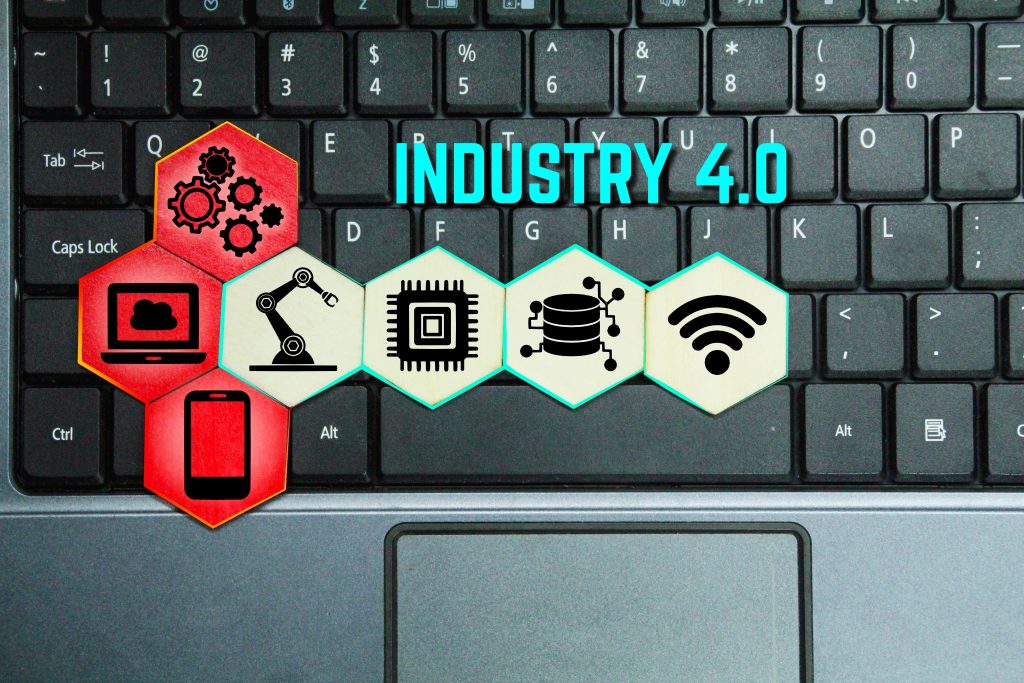
True, the transition to steam engines and hydropower and then to mass production and the advent of electricity seems like eons ago. But it seems like only yesterday that computers and automation started taking over how we live our lives! If someone had told me a few years ago that a small handheld device would dictate my life, I would have laughed at the incredulous idea. But now not only is my dependence on the multitude of gadgets a reality, but it is also passé and is making way for the next revolution!
So, what can be bigger than robotics, automation, AI, nanotechnology…and everything else that the third industrial revolution brought with it? It is not new technology, but the seamless integration of Information Technology with Operating Technology. It is how big data, automation, IoT and cloud computing are revolutionising the manufacturing sector. It is Industry 4.0!
The Big INDUSTRY 4.0 is upon us, has begun to change the way we work and is here to stay. As McKinsey puts it “Industry 4.0 is the next phase in the digitisation of the manufacturing sector, driven by four disruptions:
1) Big Data,
2) Advanced Analytics,
3) Human to machine interfaces &
4) Robotics and 3D printing.”
Industry 4.0 is already here?
Forbes says Industry 4.0 introduces the concept of ‘Smart Factory’ – where physical systems become Internet of Things constantly communicating with each other as well as with humans, as they manage, course-correct process and make decentralised decisions.
We already see Industry 4.0 in action at some level in BMW’s self-driving transport robots and in drone based deliveries used in factories across the world. In an entirely different application of Industry 4.0, world’s leading aircraft manufacturer Airbus has 3D printed more than 1,000 flight parts for the A350 XWB aircraft in its effort to speed up manufacturing processes.
The benefits of Industry 4.0 are exponential
Making production faster, more efficient and more flexible is just the beginning.
- Industry 4.0 has the power to optimize the entire value chain in real time. Imagine a manufacturing world where each product manufactured is customised to individual requirements, where the raw material is taken into account automatically, where wastage is a thing of the past and where suppliers can respond immediately to altered demand. Industry 4.0 has already made all of this possible and so much more. Manufacturers are now able to ensure optimal utilization of their factories at all times.
- Computer control means more consistent and reliable output. Say goodbye to the fear of human error.
- In risky and dangerous environments, Industry 4.0 can improve the health and safety of employees dramatically.
- With data available at every stage of the manufacturing and delivery processes, companies can control supply chains better and more efficiently.
- And of course, shorter production timelines and increased efficiency would translate to better revenues, improved market shares and more profits for businesses.
Are we ready for Industry 4.0?
Like any new revolution, it is not all smooth sail for Industry 4.0 either. There are the obvious concerns regarding complete dependence on automation and reluctance to invest heavily in new technologies. Also, there is a lack of expertise and manpower to implement these systems in the current day and age.
Like with any automation, Industry 4.0 has also triggered debates about machines replacing humans and its impact on the job market, and there on the economy.
The biggest and the most pressing concern, however, is security. Data security issues are greatly compounded by integrating physical systems and devices. Enter concerns regarding proprietary production knowledge, Cyber Espionage, Cyber Terrorism and Advanced Persistent Threats (APTs). Strong security and defense measures are needed to protect against these threats.
Yet at the end of the day, Industry 4.0 seems to be inevitable. Moreover, the benefits far outweigh the challenges when it comes to Industry 4.0.
The question hence is not ‘if’ Industry 4.0 will revolutionalise the way we work but ‘how soon!’


